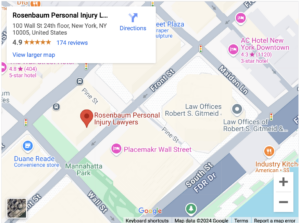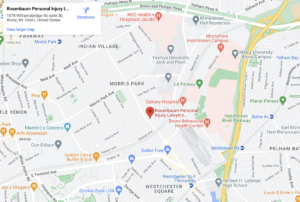Should New York Get Tougher on Distracted Driving?
Distracted driving is highly dangerous, yet the penalties for distracted driving are highly lenient compared to those for drunk driving.
New Yorkers who look to the law to keep people safe on the road and to be fair should get a good understanding of the state’s laws regarding distracted driving. An important thing to consider is whether or not the penalties for distracted driving are tough enough. One way to evaluate this is to compare the penalties to those associated with a drunk driving offense.
Both drunk driving and distracted driving are known to negatively impact a person’s ability to safety operate a motor vehicle. Both actions can increase the chance of an accident. Yet the penalties for each are radically different.
Drunk driving penalties in New York
According to the New York Department of Motor Vehicles, a driver who is convicted of an impaired driving offense may face multiple penalties. If an arrest is a first offense and the person’s blood alcohol content was between 0.08 and 0.17 percent, jail time could be ordered lasting as long as 12 months. The driver may lose the right to drive for six months. A fine might be as high as $1,000. While a first DUI in New York is a misdemeanor, subsequent offenses are felonies.
In addition to the penalties noted here, a criminal conviction may have many negative repercussions for people including making it hard to get a job or even housing.
A driver who has a BAC below 0.08 percent may still be cited for driving while ability impaired. If this happens, 15 days in jail and a 90-day loss of driving privileges may result in addition to a fine.
Distracted driving penalties in New York
Distraction.gov notes that no driver is allowed to text or use an electronic device in handheld mode while operating a vehicle. Violations of this law are neither misdemeanors nor felonies but simple traffic infractions.
A first distracted driving offense carries with it a fine up to $200. Second and third offenses may cost up to $250 or $450, respectively. Subsequent offenses are noted if they occur within 18 months of a first offense.
A wide discrepancy requires additional help
Clearly, the state of New York is far easier on distracted drivers than it is on drunk drivers, despite the fact that both put innocent people at serious risk. People who are involved in accidents caused by distracted drivers should seek legal help after crashes. This can be one way of pursuing appropriate compensation.
Contact the New York City Car Accident Law Firm of Rosenbaum Personal Injury Lawyers for Help Today
If you’ve been injured in an accident in Manhattan, NY, and need legal help, contact our car accident lawyers at Rosenbaum Personal Injury Lawyers to schedule a free consultation. We also serve in Brooklyn and the Bronx.
Rosenbaum Personal Injury Lawyers – New York City Office
100 Wall St, 24th Floor
New York, NY 10005
(212) 514-5007
Our firm is located near you. We have an office in NYC
Find us with our GeoCoordinates: 40.7051415,-74.0067386
Rosenbaum Personal Injury Lawyers – Bronx Office
1578 Williamsbridge Rd suite 3b
Bronx, NY 10461
(929) 447-2347
Our firm is located near you. We have an office in the Bronx
Find us with our GeoCoordinates: 40.8468944,-73.8483118
Rosenbaum Personal Injury Lawyers – Brooklyn Office
32 Court St #704
Brooklyn, NY 11201
(718) 550-3601
Our firm is located near you. We have an office in Brooklyn
Find us with our GeoCoordinates: 40.692948,-73.991038



